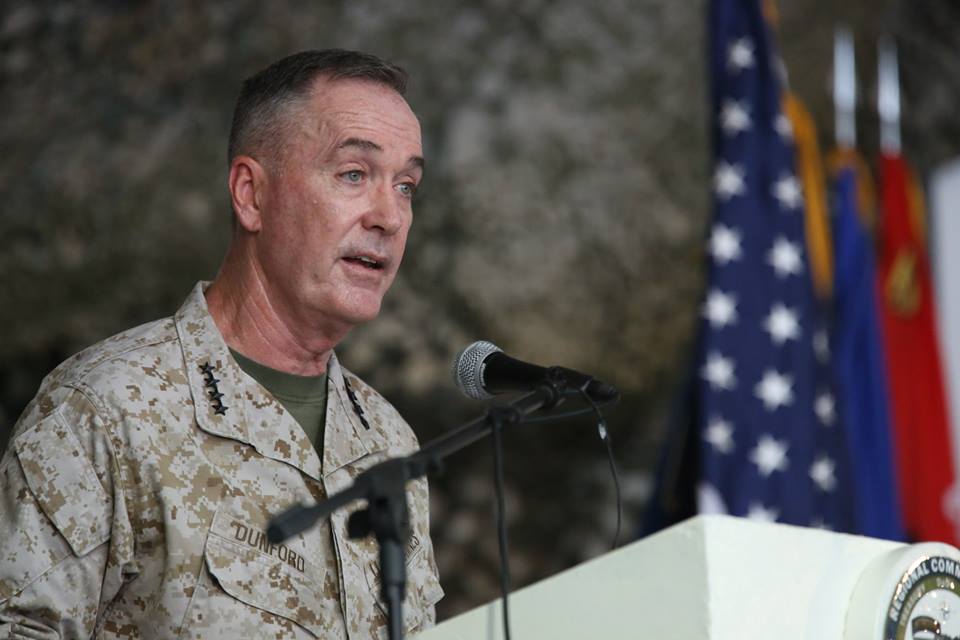 Afghanistan’s police and army are losing too many men in battle, and may need up to five more years of western support before they can fight independently, the top US and Nato commander in the country has told the Guardian.
Afghanistan’s police and army are losing too many men in battle, and may need up to five more years of western support before they can fight independently, the top US and Nato commander in the country has told the Guardian.
General Joseph Dunford also said in an interview that it was too early to judge whether Nato had been right to end combat operations in Afghanistan this spring. Western forces have officially offered only training and support to the Afghan army and police during the brutal fighting season of the summer months.
Dunford admitted that Nato and Afghan commanders are concerned about Afghan casualty rates, which have regularly topped more than 100 dead a week. “I view it as serious, and so do all the commanders,” Dunford said. “I’m not assuming that those casualties are sustainable. . . .”
The west officially stopped fighting in Afghanistan in June, shifting to a “train, advise, assist” role. Asked whether he thought that transfer was premature, given the problems that Afghan forces face, Dunford said it was too early to judge. “I think time is going to tell – I don’t think you can tell that today.”
Dunford’s comments highlighted an apparent rift between western politicians keen to wrap up a messy war that has cost thousands of lives and billions of dollars, and military commanders on the ground who are seeing a newly formed police force and army struggling against a hardened insurgency.
Barack Obama has made it clear that he does not want American soldiers fighting in Afghanistan after 2014, when all Nato combat troops are due to leave. “By the end of next year – in just 17 months – the transition will be complete. Afghans will take full responsibility for their security and our war in Afghanistan will be over,” Obama told Marines at their Camp Pendleton base last month. A follow-up Nato training mission, Resolute Support, has been promised, but with a lower profile and far fewer soldiers than the nearly 90,000 still scattered around Afghanistan. . . .
Dunford also did not rule out a combat role for Nato troops after 2014, particularly in the form of close air support – the planes and helicopters that aid troops caught in fierce fighting, which is a capacity that Afghanistan is only starting to develop.
“There are three words in the mission: train, advise and assist. In a Nato context ‘assist’ would include things like providing combat support, which is specifically the aviation piece, and a policy decision would have to be made about that,” he said. . . .”
Progress has come at a heavy cost in lives. The Afghan defence ministry no longer publishes monthly death tolls because of concerns about morale, and the interior ministry said on Monday that 1,792 police officers had been killed since March, Reuters reported. That was equivalent to losses in the 12 preceding months, so in effect a doubling of the death toll.
Image: USMC Gen. Joseph Dunford, Commander of ISAF (photo: US State Department)
